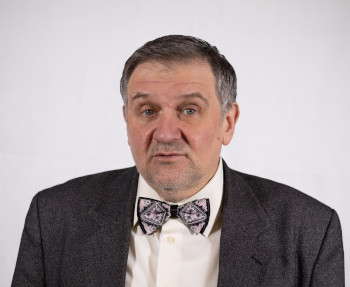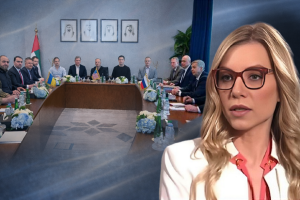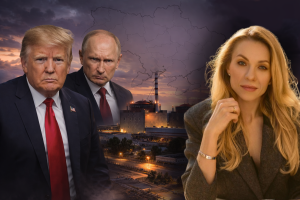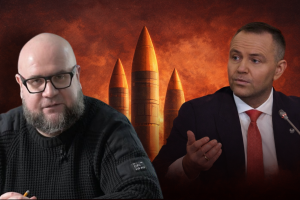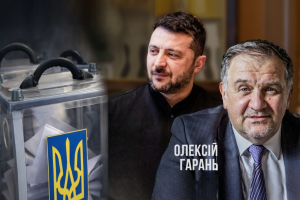As Belarus protests, Ukraine’s civil society reacts - with solidarity
Grigory Pyrlik
Hosting Belarusians at their homes, documenting police violence and organising solidarity actions - Ukrainian civil society has reacted quickly to events in Belarus. Rread the full text: openDemocracy
Oleksiy Haran, professor of political science at the National University of Kyiv-Mohyla Academy, scientific director of the Ilko Kucheriv Democratic Initiatives Foundation, shared his observations of the Belarusian protests.
A common past?
Oleksiy Haran is following the Belarusian protests as both a citizen and researcher. He sees some commonalities between Ukraine’s revolution and the stage of the current Belarusian protests.
“The national flag is currently being rehabilitated in Belarusian society,” Haran says. “There’s a certain similarity with Ukraine here: before 1988, Ukraine’s blue and yellow flag wasn’t recognised. But since 1989, all democratic protests have been held under it, it has been legimitised. Now people defend Ukraine’s independence under this flag. It’s the same with Belarus’ white-red-white flag: it’s becoming a symbol of freedom. For me it’s completely clear that this flag will replace Belarus’ flag, which is basically Soviet.”
Citing the experience of Maidan, Haran believes that Belarus’ leaderless protest is not a cause for concern over its success. He says that EuroMaidan also lacked a single leader. He also observes that the protests in Ukraine in 2014 were not anti-Russian from the start. “Prior to 2014, NATO supporters in Ukraine were in the minority. Now they’re the majority. Right now in Belarus many people believe in a union with Russia, but much will depend on Russia’s reaction. If Russia choses to support Lukashenka directly, it will start to lose.”
There are yet to be any polls held on Ukrainian society’s support for the protests in Belarus, but it’s clear that there are people who support the Belarusian authorities. In 2019, the Rating sociological group conducted a poll which found that, for respondents, Alyaksandr Lukashenka was the most popular leader - 66% of respondents viewed him positively, and 15% negatively; according to the same poll, Angela Merkel received 60% and 17%, Andrzej Duda - 48% and 9%.
“The fact that Lukashenka ranked first is the result of an organised campaign to persuade society by pro-government television channels under Leonid Kuchma and Viktor Yanukovych, and now TV channels belonging to Medvedchuk,” Haran says, referring to Viktor Medvedchuk, head of the political council of the pro-Russian Opposition Platform - For Life party.
“These TV channels always said that what people need is stability, and that ‘Maidans’ are harmful,” Haran continues. “On the outside, Belarus looked stable. Obviously experts, political scientists epxlained that this is autarchy, that the country survives on Russian subsidies, that money is made via contraband schemes, on the allegedly non-existent border with Russia.”
Source: openDemocracy

